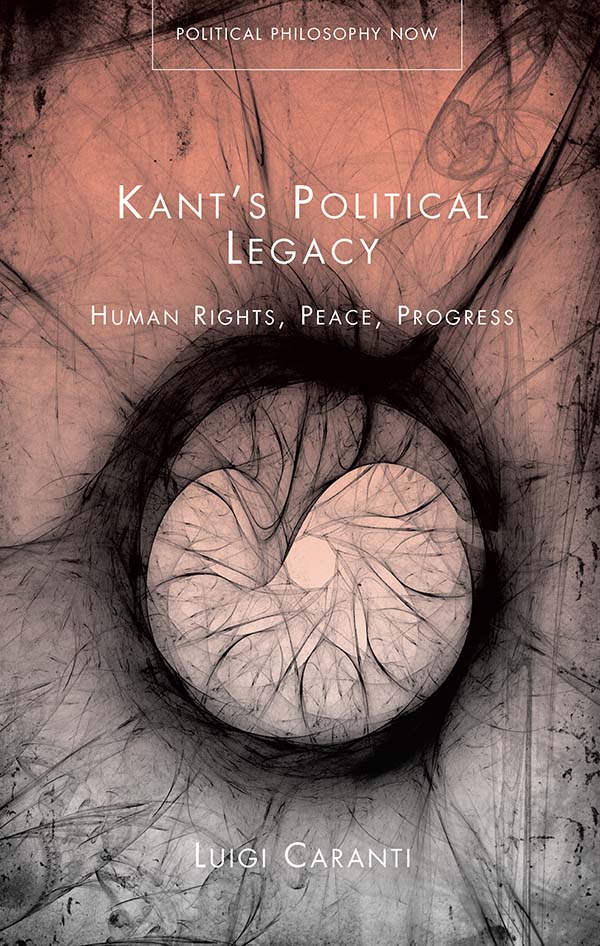Kant's Political Legacy
Human Rights, Peace, Progress
Author(s) Luigi Caranti
Language: English
Genre(s): Philosophy
Series: Political Philosophy Now
- March 2017 · 320 pages ·216x138mm
- · Hardback - 9781783169795
- · eBook - pdf - 9781783169801
- · eBook - epub - 9781783169818
- · Paperback - 9781786834317
This book focuses on Kant’s analysis of three issues crucial for contemporary politics. Starting from a new reading of Kant’s account of our innate right to freedom, it highlights how a Kantian foundation of human rights, properly understood and modified where necessary, appears more promising than the foundational arguments currently offered by philosophers. It then compares Kant’s model for peace with the apparently similar model of democratic peace to show that the two are profoundly different in content and in quality. The book concludes in analysis of Kant’s controversial view of history to rescue it from the idea that his belief in progress is at best over-optimistic and at worst dogmatic.
Congratulations to Professor Luigi Caranti and his book 'Kant's Political Legacy' which has been given a 'honorable mention' by the North American Kant Society in the competition for the best 2018 book on Kant!! http://northamericankantsociety.onefireplace.org/Announcements/6660588


